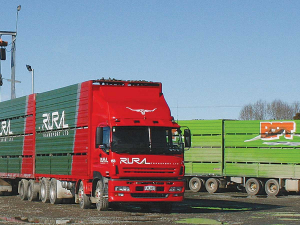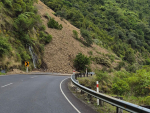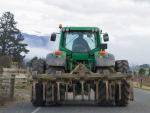National road freight industry group Ia Ara Aotearoa Transporting New Zealand is calling for the Government to urgently act and fund road maintenance to fix potholes and road quality issues.
Waka Kotahi New Zealand Transport Agency (NZTA) received a record number of complaints about vehicle damage caused by potholes in the first 10 months of 2022.
555 complaints were received, compared with 421 in 2021.
Transporting New Zealand chief executive Nick Leggett says the summer holiday period has highlighted the state of New Zealand’s roads.
“It’s not just about road maintenance. We also need the government to recommit to new roading capacity to ease the strain on our existing network,” he says.
Leggett claims the Government is too focused on pinning the blame on others and should instead make the necessary investment in the network.
“We acknowledge that there are a number of factors beyond the current government’s control impacting our road network, but the blame-game isn’t going to fix the potholes [and] stop people’s vehicle’s being damaged.”
In a series of tweets on 28 December 2022, Transport Minister Michael Wood claimed numerous factors responsible for the high numbers of potholes.
Among those reasons were historic underinvestment, a wet winter, and heavier vehicles.
He says providing the reasoning was “not to shrug off the issue”, but they did explain why New Zealand is seeing more potholes.
“While we can usually only do temporary patches in the colder months, this summer will see the biggest ever maintenance programme, with around 2500 lane kilometres planned for renewal,” Wood says.
Leggett says that blaming heavier vehicles for the issues with the roading network is “completely inaccurate”.
“Peer reviewed studies referenced on NZTA’s own website confirm that 50MAX trucks have no more impact on pavement than a standard Class 1 vehicle, due to their additional axle configuration,” he says.
“Even if they did, New Zealand’s road user charges system is calculated based on the vehicle’s impact on road surface, so trucks and heavy vehicles are more than paying their way.
“It’s unhelpful for the Transport Minister to be making these comments, especially as 50MAX trucks can reduce road freight carbon emissions on a tonne/kilometre basis by up to 35%,” Leggett claims.
Transporting New Zealand is encouraging the Government to increase funding for road maintenance and new investment in state highways, despite the challenging economic conditions.
"The best way forward for New Zealand is to invest in infrastructure that supports our economy. New projects will help us grow our way out of our recessionary environment.
"93% of all products in New Zealand are delivered by truck. Doing nothing about the state of our roads will literally bring the domestic economy to a standstill," Leggett says.



















